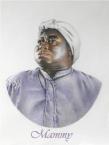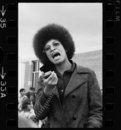In later chapters I talk about the media’s role in shaping the strong black woman. I also talk some more about my life, and streams of feminism flow through, but I suggest that you read “Feminine Mystique or Mistake” by Diane Passno for a full treatment of feminism’s detriment to the Christian woman. But now, consider this: When I began living my life as a Christian, asking questions of my faith and seeking to please Jesus, I became a thinking Christian. I tested my notions through the lens of a Christian worldview and was forced to reexamine my beliefs.
I found that 1) women and men are not created equal in all ways (Gen. 2:7, 21-22); 2) women should allow their husbands to provide for and protect them (Eph. 5:22-33); 3) because men and women are created different and have different roles, it’s impossible to split everything 50/50 in marriage (Eph. 5:22-23; Gal. 6:1-2); 4) a Christian woman’s body is not her own and she doesn’t have a right to alter its natural function by killing life (1 Cor. 6:19-20); and 5) many people may be attracted to you, including other women, but we must choose according to God’s standards (Matt. 19:4-5; 2 Cor. 6:14).
I believe there has been a perpetual, systematic presentation of the strong black woman that has been used to dupe us. The strong black woman presented over the years does not draw real strength from old wives’ tales, media images or feminism. In fact I believe these three areas, with sin at their root, are the reasons black women who consider themselves strong black women have been walking in their own strength, many times not even knowing this. The bottom line is our strength vs. God’s strength and it is up to us to choose.
Romans 8:1 says, “There is therefore now no condemnation to them which are in Christ Jesus, who walk not after the flesh, but after the Spirit.” God does not condemn us, black Christian women, if we seek after his Spirit. We must be armed and equipped, able to critique the culture and ourselves so we can seek his Spirit and not walk after the flesh, down the road of the strong black woman.
Copyright 2006-2010 by Rhonda J. Smith



